ML4Q Undergraduate Internships
Five Coffee Machines and a Whole Lot of Physics
“Five coffee machines… Five!” The first thoughts of the first day had stuck in my head for a while. “How much do these people work?”. I was looking through the office window, staring at the fresh green leaves of the neighboring chestnut tree. I tried to gather my thoughts, excited about what was coming. The answer to my unasked question was simple: a lot. Funnily enough, this short phrase quite accurately foreshadowed the upcoming days, weeks, and months.
A lot of kind, welcoming people who never made me feel bad for asking way too many questions.
A lot of knowledge, a lot of reading and coding, a lot of hours spent in the office in front of the computer, trying to figure out the meaning behind endless mathematical symbols and lines of code.
A lot of cakes and even more coffee, seasoned with the humor of after-lunch breaks.
A lot of troubled “Whyyyy?”s and ecstatic “Oh, that’s why”s.
A lot of sheep and bunnies on the meadow by the university canteen.
A lot of captivating conversations and consumed cookies during the conference poster session.
A lot of inspiring talks, subtly reminding me how little I know and how much more there is to learn.
A lot of late-night walks around Aachen — the city of salsa music echoing in Elisengarten on Sunday evenings, of people dancing and laughing on the streets despite the pouring rain and where time seemed to slow down after the sun had set — walks that felt more like a movie scene than the reality.
A lot of unexpected connections that grew beyond the harsh three-month deadline and will hopefully last much longer.
And, above all, a whole lot of physics.
On my last day, the leaves of the chestnut had turned brown, marking the end of summer, as I walked out of the office for the last time. “Coffee was great today,” I thought to myself. I have mastered the coffee machines quite quickly. Yet, I still have no idea how the office printer worked.
Maria Hadam, BSc student in Quantum Engineering, Wrocław University of Science and Technology, Poland
Intern in 2025 in the Müller group, Aachen


A lovely experience and a beautiful research environment
The three months I spent at Forschungszentrum Jülich were one of the best summers I’ve ever experienced. Besides the experience of a pleasant summer in a quiet yet beautiful German town like Jülich, the degree of openness and collaboration at the Forschungszentrum made me feel at home. My own institute (Quantum Computing Analytics (PGI-12), FZJ) had five different research groups, all of whom were researchers in different directions, but collaborating in a way that would further the domain of quantum computing research.
My mentor, Dr. Alessandro Ciani, had been one of the most supportive people I’ve met. I worked on an open problem on self-protection of superconducting qubits using GKP codewords and the protected GKP Hamiltonian for passive quantum error correction, and he had been kind enough to help me and guide me through our project whenever I got stuck. We are continuing our project, as I obtained some interesting results during the final stages of my stay in Germany. The best part of my stay, however, was the ML4Q retreat, where I presented a poster on our research group’s work, got to know my fellow ML4Q internees, and met researchers from the ML4Q cluster. The weekends were beautiful, and I spent some of them visiting Aachen, Köln and nearby places. Overall, this ML4Q internship made my summer in Germany truly special — I got to see how research in quantum computing and related areas in physics are evolving, made lasting friendships, explored new places, and made memories that I’ll fondly remember.
Richik Modak, BS-MS undergraduate student (Physics Major), Indian Institute of Science Education and Research (IISER) Mohali, India
Intern in 2025 in the Ciani group, Forschungszentrum Jülich
A First Step into Experimental Physics
I thoroughly enjoyed the 8 weeks I spent in Cologne working with Josephson Junctions – it was an incredible first step into experimental physics. The group’s warm and welcoming atmosphere made me feel at home straight away, and the patient guidance I received from my supervisor and other group members was invaluable. I learned so much from them – both about physics and life in academia! The ML4Q retreat was a fantastic chance to connect with other interns and researchers, and I had a great time learning about all the amazing work going on in the cluster. Cologne is a wonderful city, and I loved exploring it along with other places in Germany. The ML4Q internship is an incredible opportunity and I would highly recommend it to other students fascinated by the world of quantum technology.
Manya Bhargava, BSc student in Physics, Imperial College London, UK
Intern in 2025 in the Bocquillon group, Cologne
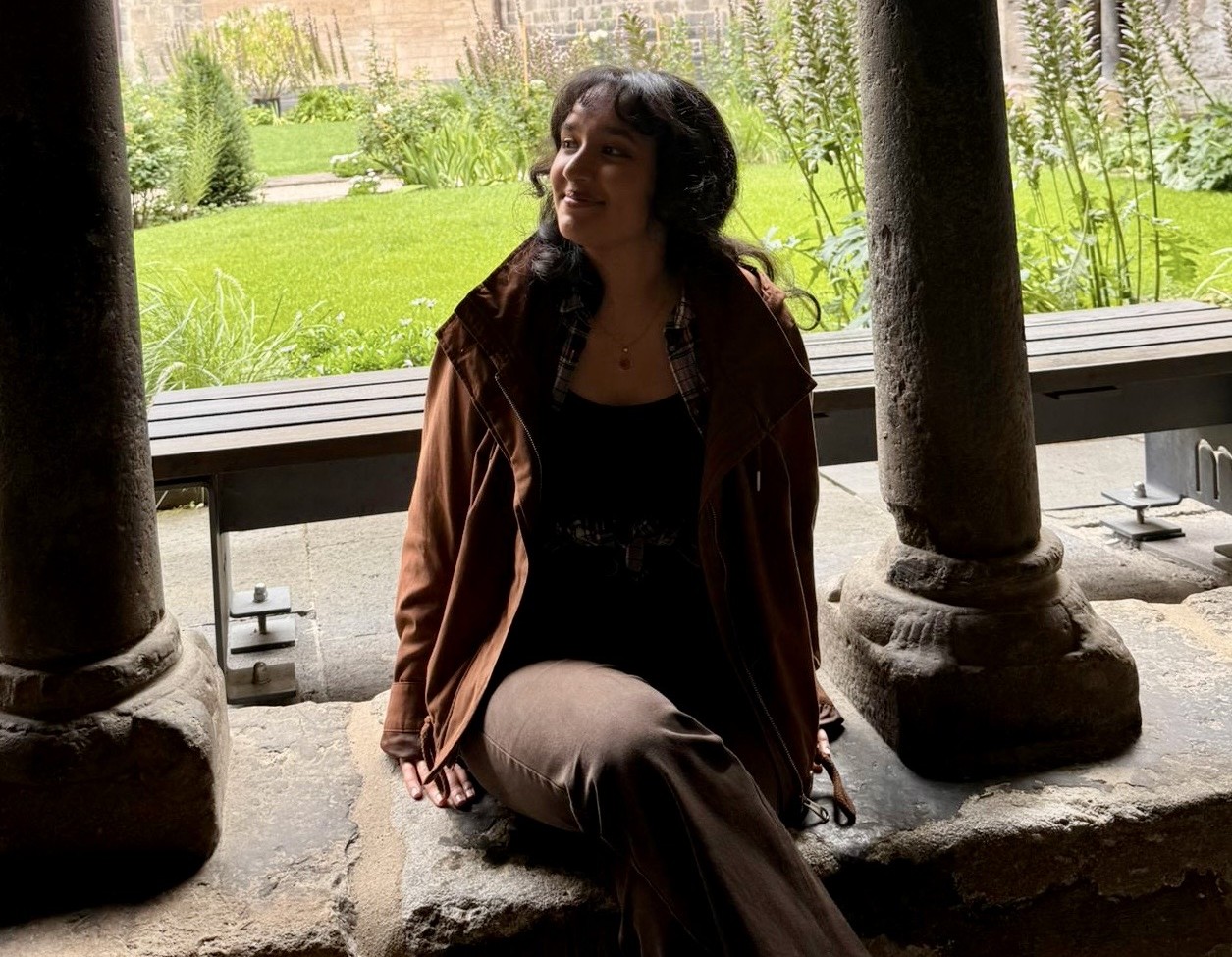
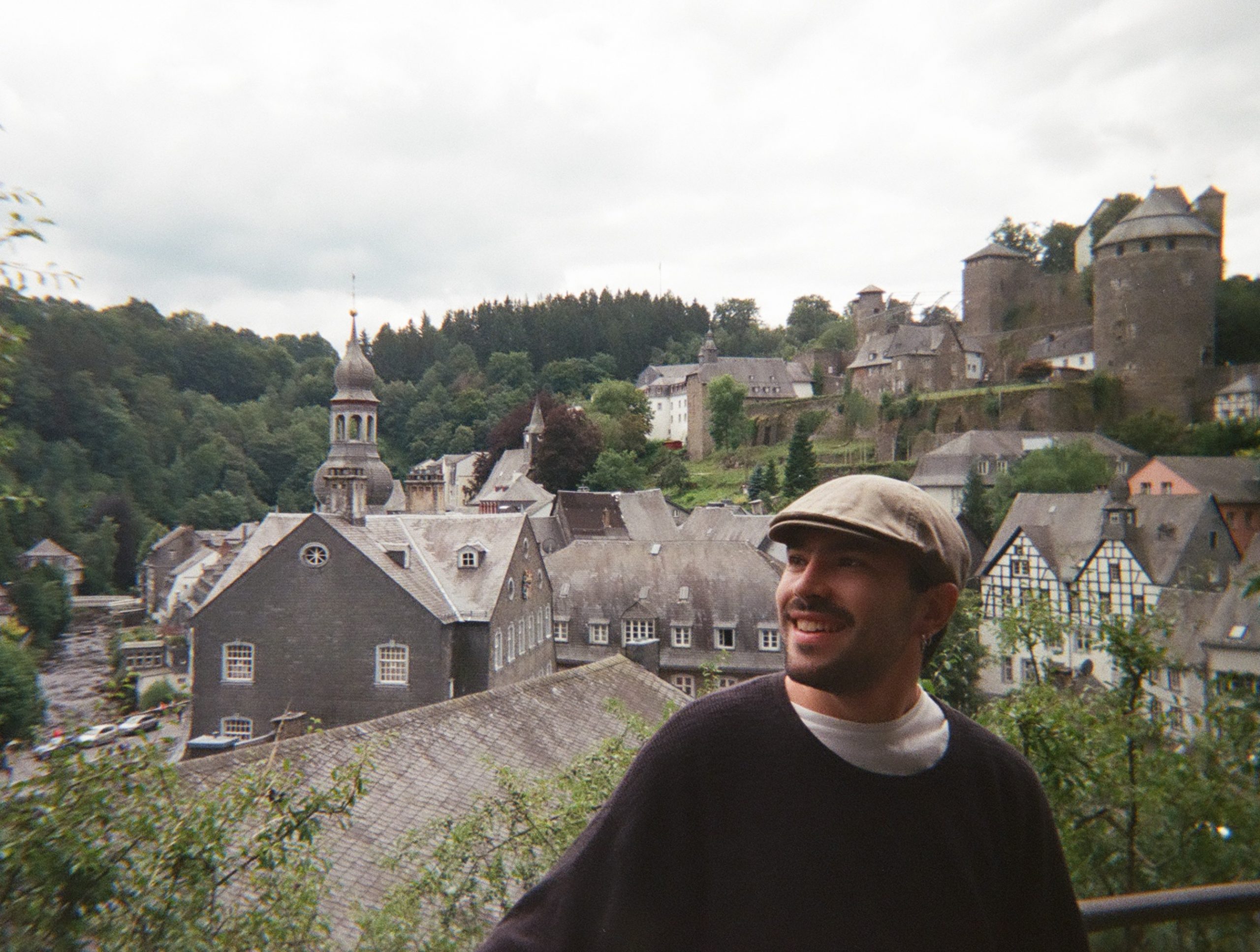
Enabling qubits in bilayer graphene quantum dots
I had the opportunity to join Christoph Stampfer’s group at RWTH Aachen thanks to the ML4Q summer internship program, and I have nothing but good things to say about my experience there. Despite my background being more theoretical than experimental, we found the best way for me to both learn from their experimental research and contribute with my own skills. I mainly worked on simulating a bilayer graphene double quantum dot to explore possible qubit implementations. Thanks to the great atmosphere among colleagues, the constant flow of seminars and discussions, and the motivation shared by everyone in the group, I learned a lot about the topic and even obtained some promising results.
My experience was not limited to the Institute of Physics at RWTH Aachen. I also had the opportunity to meet the other interns and many researchers who are part of ML4Q during the summer retreat and the September conferences, which really helped me broaden my horizons in the field of Quantum Technologies. On top of that, Aachen is a fantastic city that added the perfect finishing touch to an unforgettable experience.
Manuel Montes Armenteros, Master Student in Physics and Quantum Technologies, Menéndez Pelayo International University, Spain
Intern in 2025 in the Stampfer group, Aachen
Bridging Theory and Experiment
Before coming to Cologne, my knowledge of the Quantum Hall Effect was mostly theoretical. Although I had some laboratory experience, I always considered myself more inclined toward theoretical physics. However, after reading about the work of Prof. Erwann Bocquillon’s group, I became so fascinated that I decided to give myself a chance in the experimental field.
I am deeply grateful to everyone in the group. Thanks to their guidance—especially Torsten Röper’s—I not only gained invaluable experience but also discovered a passion for experimental work that I had never felt before. Bridging theory and experiment, and realizing how much experimental practice enriches theoretical understanding, was truly eye-opening for me.
Beyond the scientific aspect, the internship was also a wonderful social experience. I had the chance to meet many inspiring people from the ML4Q cluster, to learn about their research and career paths, and to build friendships that I will always treasure.
I leave this internship with invaluable knowledge, a growing enthusiasm for quantum transport, and the amazing friends I met along the way.
Jagoda Zawisz BSc student in Quantum Engineering, Wrocław University of Science and Technology, Poland
Intern in 2025 in the Bocquillon group, Cologne

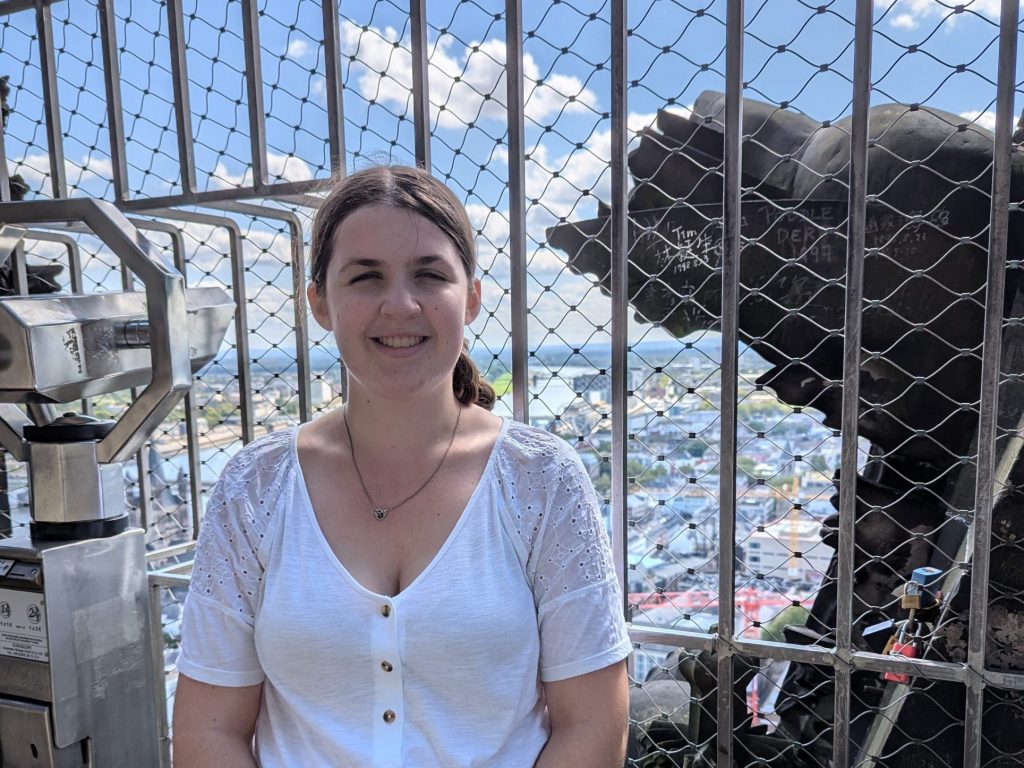
Discovering Quantum Technologies in Aachen
I participated in an internship over the summer at RWTH Aachen in the Stampfer group, working on bilayer graphene dots and studying the properties of an electron-hole double quantum dot. I really appreciated the support of my supervisor and the other group members during my project, I was able to learn so much from them and gain a lot of valuable experience during the internship. I am very grateful to everyone in the group for creating such a welcoming atmosphere and making my summer in Aachen so enjoyable. I also enjoyed the experience of connecting with others in the cluster during the ML4Q retreat, where I was able to learn about research in other groups through the poster session and talks and learn more from others about their experiences in physics. The ML4Q internship program was such a wonderful experience, and I highly recommend it to anyone interested in quantum technologies.
Emma Horgan, Master student in Physics, Imperial College London, UK
Intern in 2024 in the Stampfer group, Aachen
Theoretical physicist in experimental group
Coming to Cologne, I knew nothing about superconductivity—let alone Majorana fermions, cryogenic techniques, or Josephson junctions, the latter of which formed the basis of my project. This unfamiliarity, however, turned out to be the perfect opportunity to explore the subject with a fresh, independent perspective.
Thanks to the invaluable guidance from my supervisors, the warm, collaborative atmosphere within the group, and insightful conversations with fellow students and researchers at conferences, seminars, and outings, I found myself, for the first time, genuinely considering a shift from theoretical to experimental physics. I thoroughly enjoyed the hands-on work, the computational tasks, and the challenges of optimising the experimental setup and understanding the results. I truly hope my path will cross again with the wonderful people of ML4Q, and I’m sure that when I look back in the future, I’ll remember Cologne as a cornerstone of my research career. To anyone unsure about applying, I wholeheartedly recommend just doing so—you have nothing to lose and so much to gain!
Doğa Solmaz, Bachelor Student in Physics, Imperial College London, UK
Intern in 2024 in the Bocquillon group, Aachen
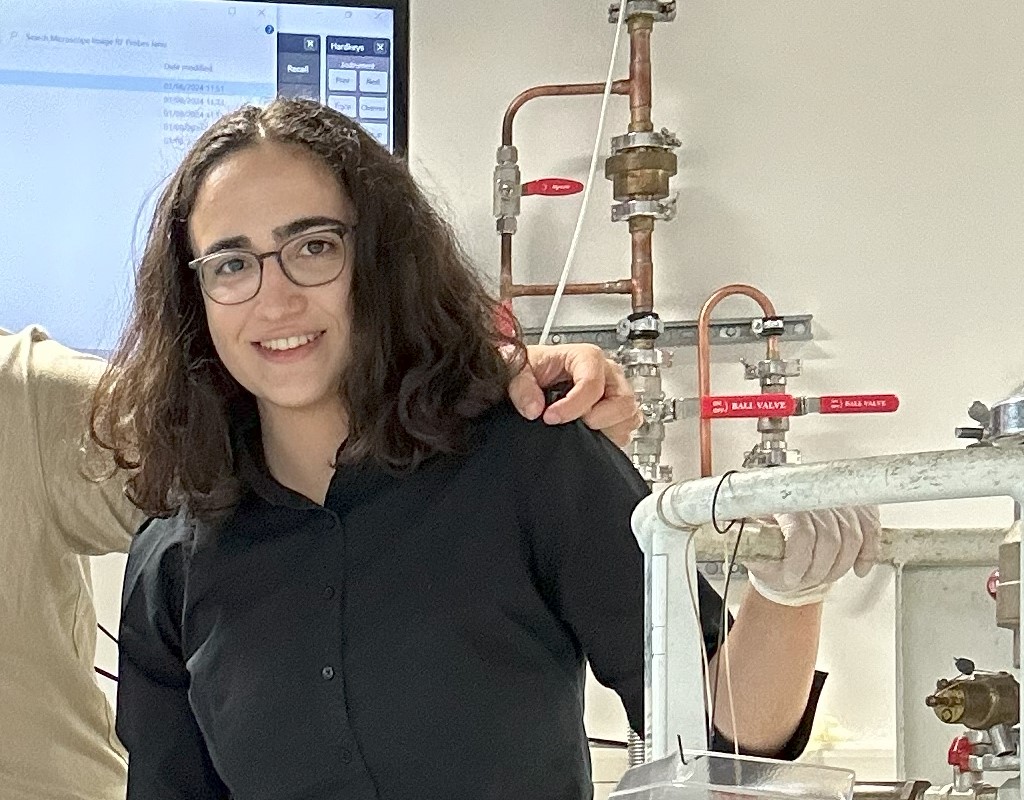
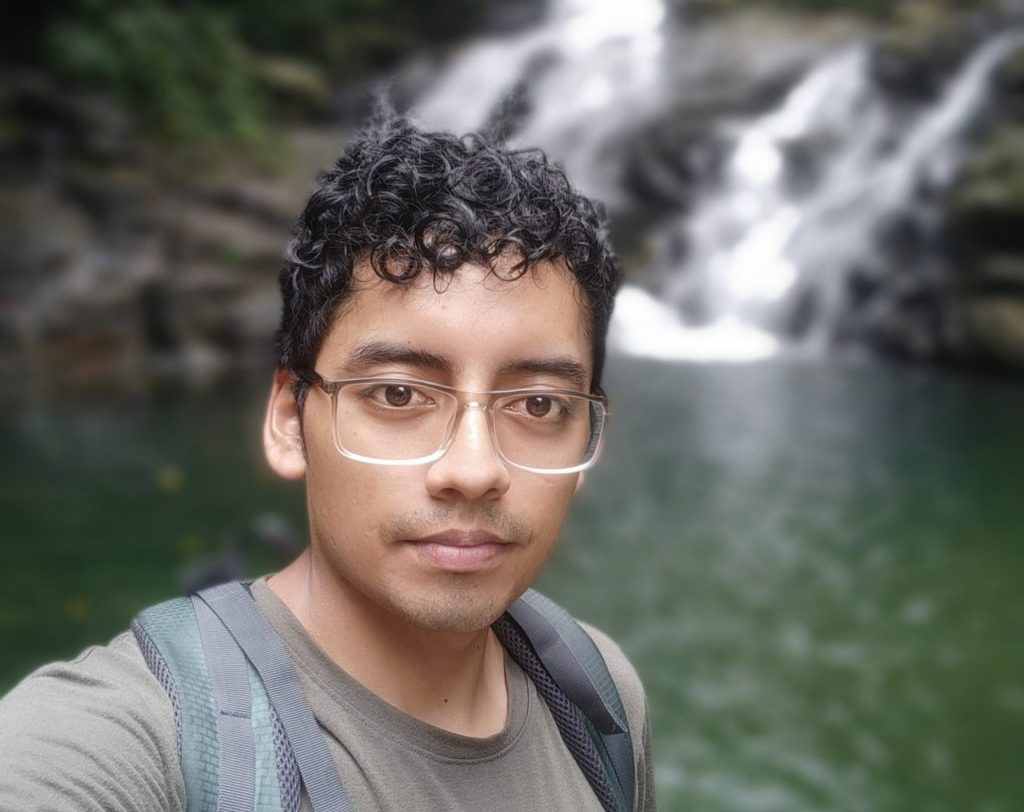
Fully immersed in the research from day one
I participated in the ML4Q internship at RWTH Aachen working on Quantum Cellular Automata for Quantum Error Correction. It was undoubtedly one of the most unforgettable and enriching experiences of my life.
Prof. Markus Muller’s group is filled with brilliant and charming people making it an amazing environment to work in. From day one I was fully immersed in the research project, exploring a completely new approach for QEC, challenging my coding skills and asking many questions. I am specially grateful to Prof. Muller and PhD student Don Winter for their support and guidance provided, not only in the research project, but also everything related to my stay in Aachen. I will certainly miss the group meetings, the journal club and the cake after lunch.
Lastly, this incredible experience would not have been possible without the ML4Q team, who guided me through the administrative processes of the internship. I thoroughly enjoyed the ML4Q retreat, where I had the chance to get to know all the other interns, and explore the various projects they were working on. I am immensely grateful for this extraordinary experience.
Juan Gabriel Balarezo, Bachelor student in Physics, Yachay Tech University, Ecuador
Intern in 2024 in the Müller group, Aachen
Transformative Experience and Superb Mentoring
Working on building the laser system for the Strontium MOT in the Stellmer Group at the University of Bonn as part of the ML4Q internship programme was a transformative experience that has shaped my academic and professional aspirations. Throughout the summer, I had the privilege of working on impactful research in quantum technology, where I gained hands-on experience with experimental setups and computer modelling/simulations and deepened my understanding of the field. The mentorship I received was unparalleled – both from my supervisors and colleagues – their support and guidance extended beyond the lab!
What made this internship truly special was the sense of community within the research group and within ML4Q as a whole. The opportunity to engage with experts from various institutions, and attend insightful workshops and talks broadened my perspective and inspired me towards further research. Beyond the academic enrichment, I formed lasting friendships and felt genuinely welcomed into the vibrant scientific community at Bonn.
This experience not only enhanced my technical skills but also deepened my passion for pursuing a career in academia. I am deeply grateful for the opportunity to be part of such a dynamic program and would highly recommend it to any student eager to delve into the fascinating world of quantum technology. The lessons learned and the connections made during this internship will undoubtedly stay with me throughout my career.
Maanas Kishorekumar Bysani, Master Student in Physics, Imperial College London, UK
Intern in 2024 in the Stellmer group, Bonn
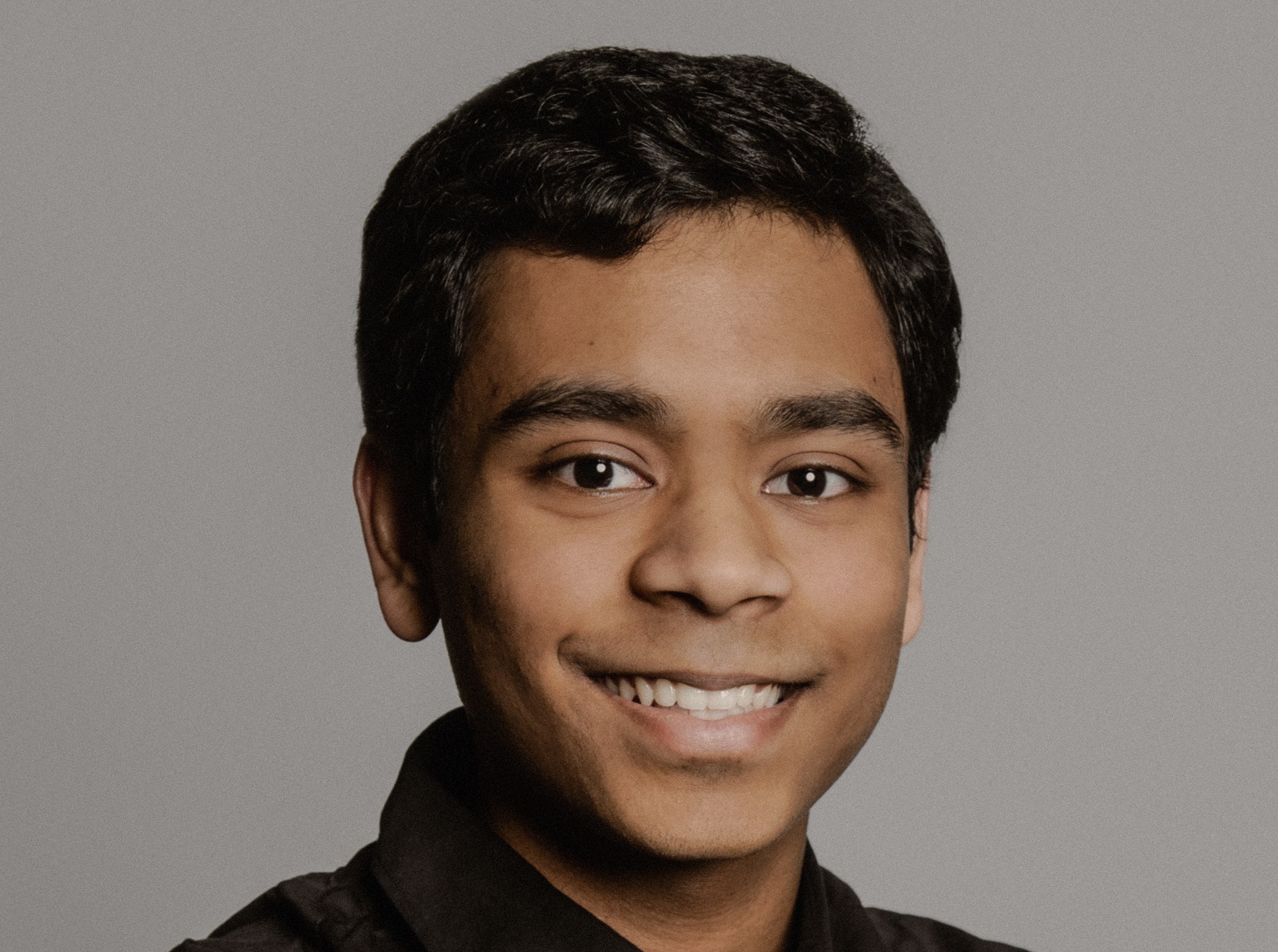
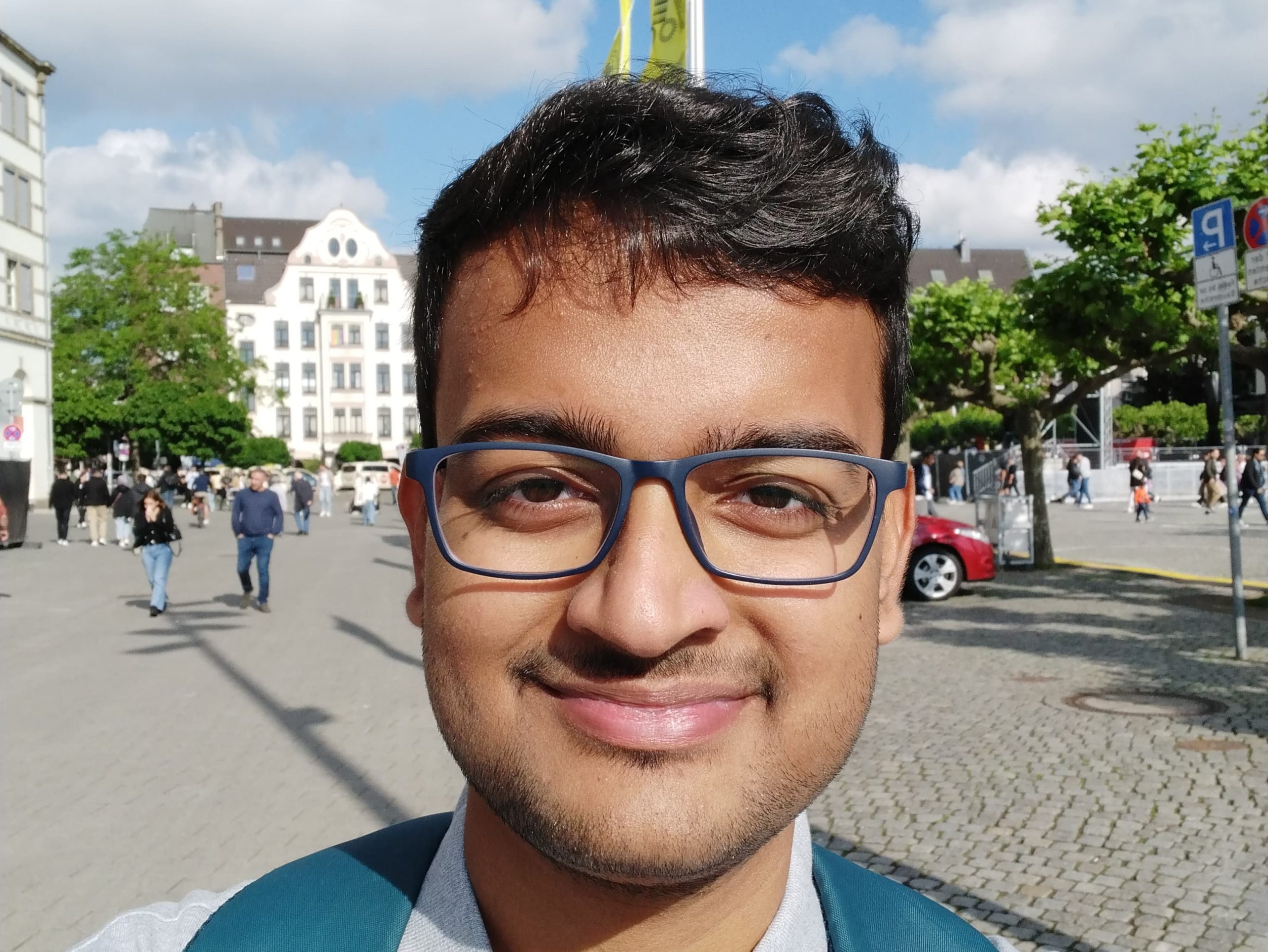
Fully immersed in the research from day one
I spent twelve wonderful weeks at RWTH Aachen, working on neural network-based decoders for topological quantum error correcting codes in the group of Professor Markus Müller. The research group provided a stimulating environment, and I had many interesting discussions with my colleagues. My mentors were extremely generous with their time and helped me with my project whenever I was stuck. I also attended talk sand seminars by visiting researchers, and conversations with them gave me a perspective on current research directions in quantum computation.
Aachen is a beautiful city, and being so close to Cologne and Düsseldorf,I had the chance to explore these places during the weekends with a couple of other interns in my group. The ML4Q retreat was the highlight of my internship. I connected with researchers across the ML4Q cluster and presented a poster on my summer research. I also met other ML4Q interns and learned about their research. The ML4Q undergraduate research internship program was everything I could have asked for and more.
Sajag Kumar, M. Sc. student in Physics at National Institute of Science Education and Research (NISER) Bhubaneswar, India
Intern in 2024 in the Müller group, Aachen
A delightful mix of hard work and great fun
The ten weeks I spent in Bonn were a delightful mix of hard work, skill development, invaluable mentorship, and great fun. I investigated quantum process tomography techniques to compare time-evolution simulation circuits, which I ran on superconducting chips available through the cloud. Besides learning how to conduct an extensive literature review, how to program a quantum computer and to relate experimental results to their physical origins, I underwent a true scientist’s process of overcoming difficulties in a research project. This is a priceless lesson I will always build on: how to think about the problem I am facing, to understand the reason why I am stuck, and to come up with promising methods for solving the issue. I am grateful to my supervisor and all the group members for taking the time to teach me both Physics and academic life hacks, as well as for being so friendly and welcoming. ML4Q is such a rich resource for anyone who wants to learn about quantum technology – I hope as many students as possible discover it!
Maria Dinca, Master student in Physics, University of Oxford, UK
Intern in 2023 in the Luitz group, Bonn

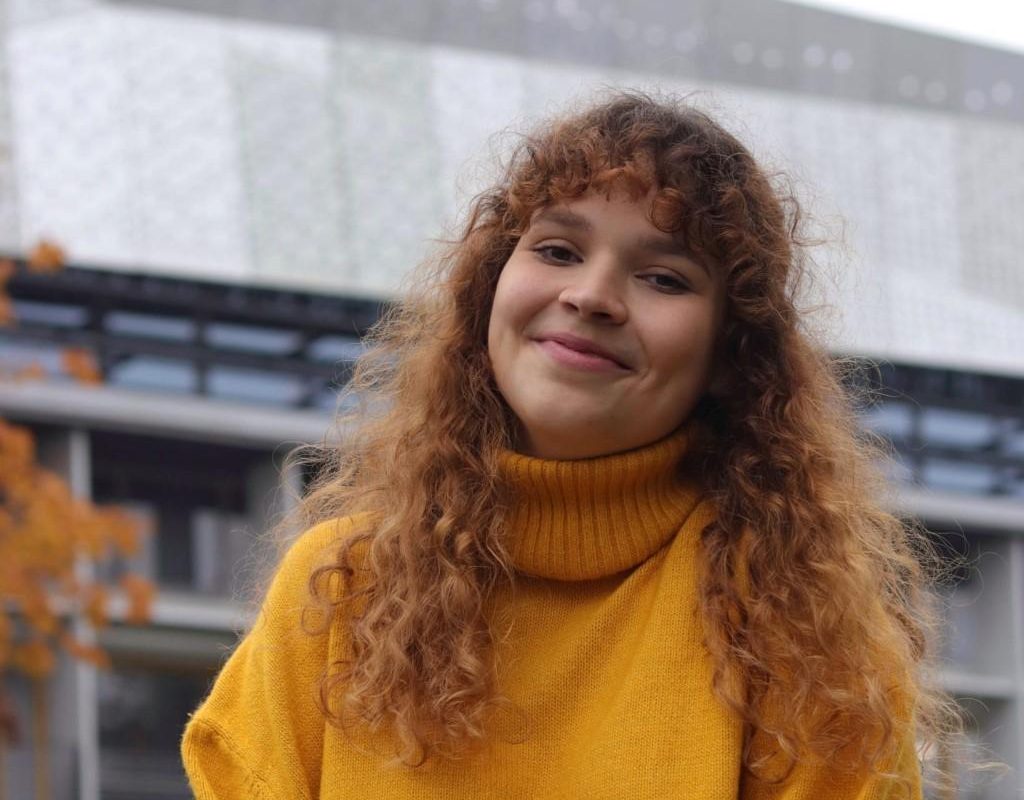
Fascinating research on quantum dots
My summer in Aachen was nothing short of extraordinary and quite possibly the greatest experience of my life. From day one, I felt at home in this new city, thanks to the warm welcome from my colleagues and housemates.
Working with Professor Christoph Stampfer’s group at RWTH Aachen University was truly amazing. I had the opportunity to immerse myself in fascinating research on quantum dots in bilayer graphene, and I was met with exceptional kindness and mentorship from my colleagues. Learning and working were incredibly rewarding. I gained hands-on experience with experimental setups and deepened my understanding of the field. Beyond the lab, I explored the rich scientific landscape and attended insightful presentations and events.
This journey not only deepened my passion for physics but also forged lasting friendships. I’m immensely grateful for this enriching experience, which has left an indelible mark on my heart and mind.
Petra Ivatović, Master student in Physics, University of Zagreb, Croatia
Intern in 2023 in the Stampfer group, Aachen
Connecting with people all over the cluster
This was my first experience in a research lab, working on creating lattice potentials for photon Bose-Einstein condensates. It was especially precious that I could discuss with the people who had been doing the research themselves. I also learned useful techniques for building an optical setup, which one could only learn hands-on. This has motivated me to do a project in quantum optics in my course. I am very grateful for the support from my supervisor and everyone involved.
What I felt special was that I could connect with people all over the cluster and see the community, through the Retreat, the Annual Conference, the Career Event, seminars, and the events that we interns arranged ourselves. I enjoyed asking people about their experience in physics the most, because those helped me see my own possibilities and encouraged me to go further.
Jiaxin Liu, Master student in Physics, Imperial College of Science, Technology and Medicine, London, UK
Intern in 2023 in the Junior Group of Julian Schmitt, Bonn
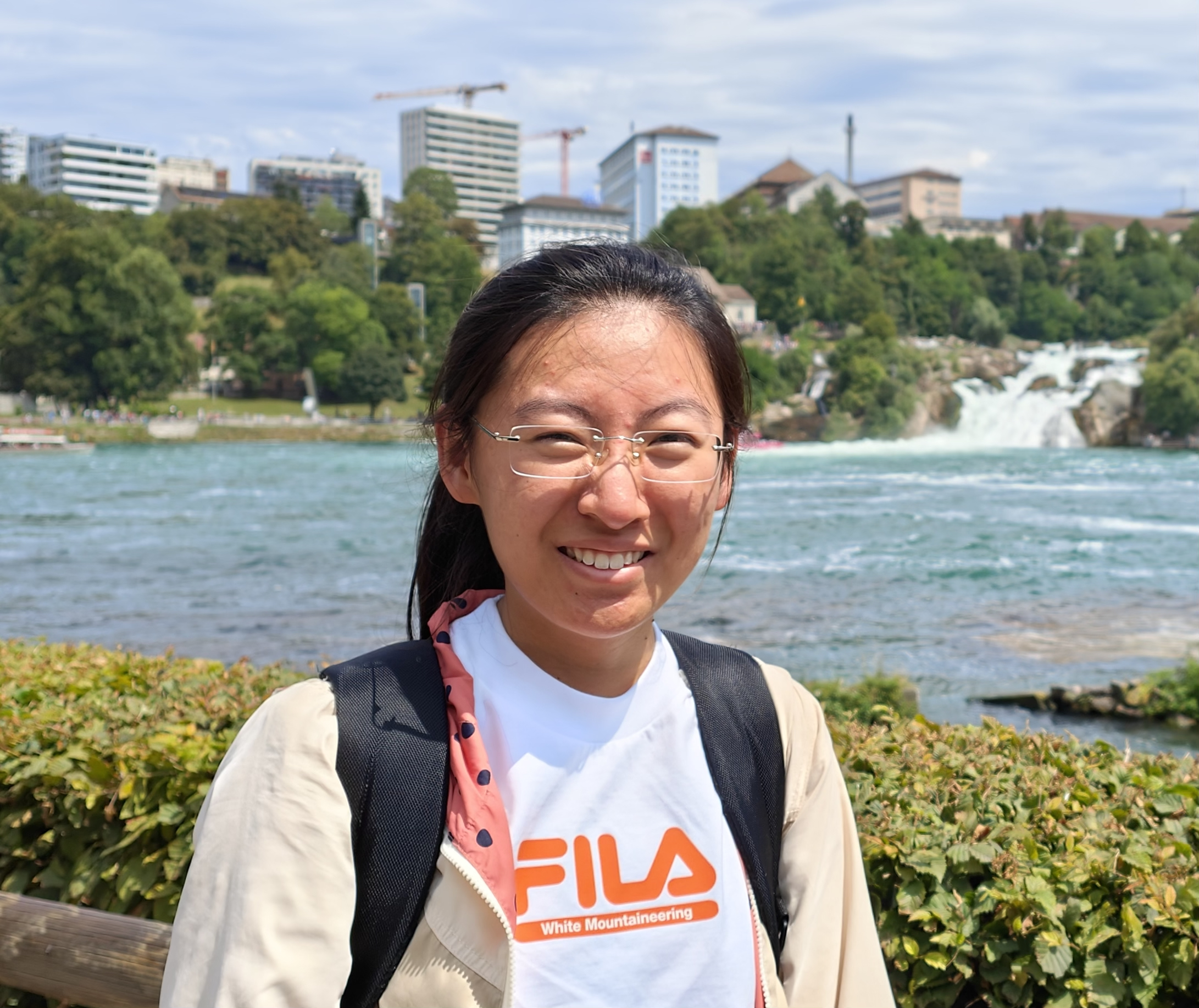
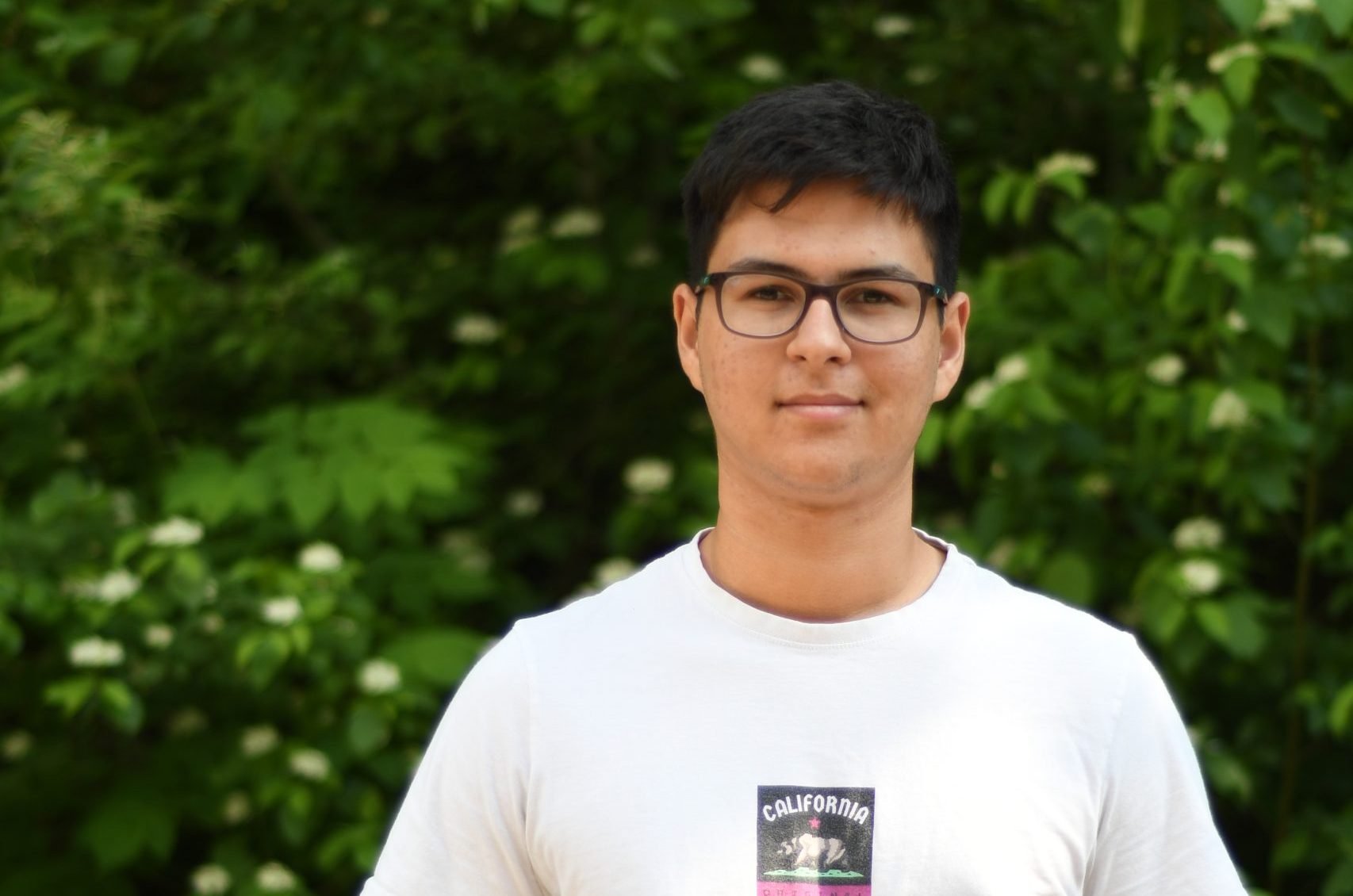
Working on a real quantum computer
I participated in a theoretical physics internship at RWTH Aachen over the summer, where I worked on faster calibration methods for operations in trapped-ion quantum devices. I learned a lot not only from my work but especially from my colleagues in the lab. As a member of ML4Q, I attended conferences and seminars, and visited Forschungszentrum Jülich, and as part of my work, I also did a week-long trip to Mainz, where I had the opportunity to test my work on a real quantum computer. I’m immensely grateful for my mentorship over the summer and for my stay in Aachen as a whole, I will have great memories of the city and of Nordhrein-Westfalen. This experience definitely helped me define my post-graduation goals, and now I strongly consider doing a master in a university of the ML4Q cluster.
Joao Henrique Oliveira Fontes, Physics student at the University of Chicago
Global Quantum Leap intern in 2023 in the group of Markus Müller, Aachen
Still in touch with my advisor
I interned at Forschungszentrum Jülich over 9 weeks in the summer, working on optimising simple pulses in overparameterized systems. This was a fascinating experience that allowed me to learn more about the field and interact with expert researchers. Over the course of my time there I saw a real quantum computer, went to two conferences, and managed to find an innovative solution to our problem. I am still in touch with my advisor, chatting about our research and the work I did there, which we hope to publish soon. My time at Jülich was lovely, allowing me to invest myself in a new academic culture and work on some state of the art problems. The ML4Q team helped make my time there as nice as possible, being responsive and as accommodating as possible. I hope future interns can enjoy and utilize this experience to its fullest!
Yonatan Gideoni, B.Sc. Expanded Physics Track with Computer Science Minor, Hebrew University of Jerusalem, Israel
Intern in 2022 in the Rosati group, PGI-12, Jülich
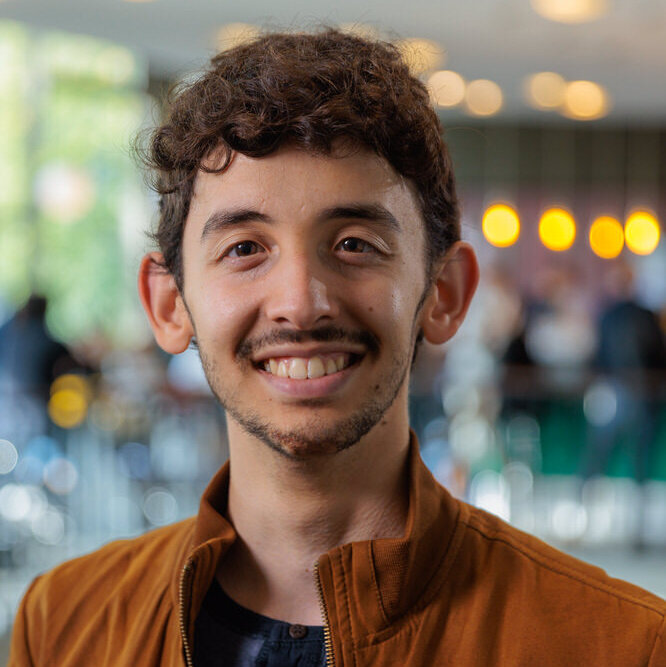
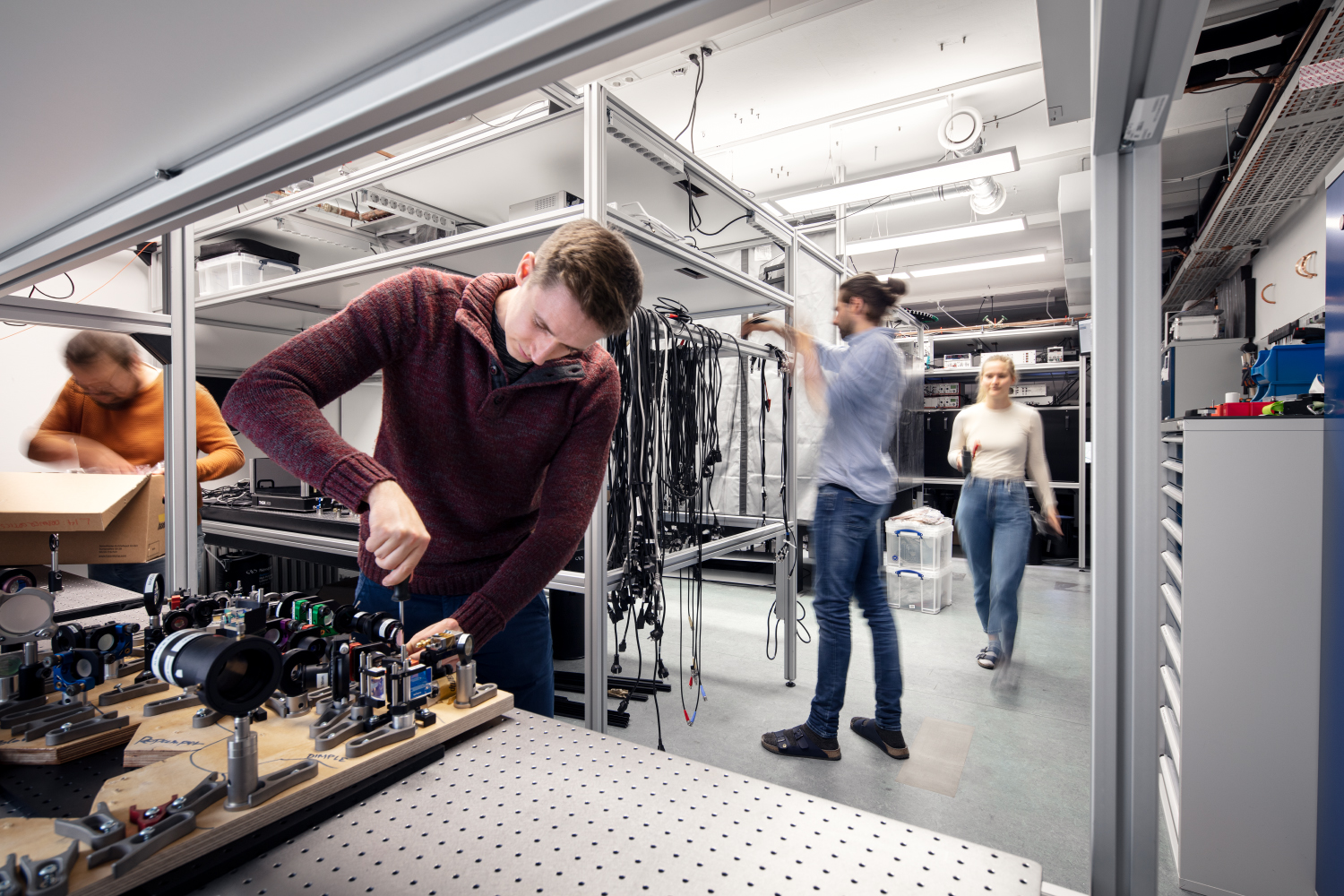
A valuable and rewarding experience
I participated in the ML4Q internship at the University of Bonn working on Waveguide-QED with Rydberg superatoms and it was an incredibly enriching experience. Not only did I have the opportunity to meet and work with some of the brightest minds in the field, but I was also able to immerse myself in a new culture and feel part of the group from the first day.
During my stay, I was involved in different research and outreach projects, also I had the chance to attend a number of seminars and workshops. I am more than grateful for all the support and guidance provided by my supervisors, not only with my questions in the lab, but also everything related to my stay in Bonn.
Overall, I feel that my internship was a valuable and rewarding experience, and I am grateful for the opportunity to have been a part of such a dynamic and stimulating academic community.
Ricardo Escobar Gavilanez, Master student in the Erasmus Mundus program in Applied Physics, Ecuador
Intern in 2022 in the Hofferberth lab, Bonn